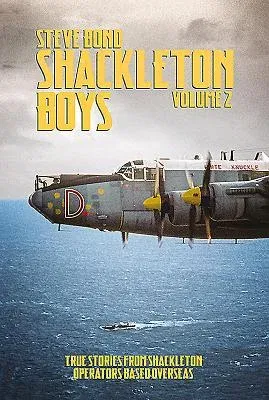After World War II the Royal Air Force went through a considerable
downsizing, but retained an essential maritime reconnaissance role for
the protection of British interests overseas. These areas were primarily
the Mediterranean, Middle East, Far East to Hong Kong and all associated
trade routes linking them to Britain and each other. With the arrival in
service of the Shackleton from 1951, re-equipment with the new type
initially concentrated on the home fleet of Coastal Command. The first
overseas station to get them was Gibraltar in 1952, followed by Malta,
Singapore, Aden and finally Sharjah. In addition to their daily routine
of maritime patrols, the overseas squadrons took part in a number of
significant operations. From dealing with rebellion in Aden, Rhodesia's
Unilateral Declaration of Independence to the Indonesian Confrontation,
the Shackleton played a vital peacekeeping role. There was even a
permanent detachment on the island of Gan for search-and-rescue cover
for aircraft transiting to and from the Far East.
The last overseas RAF Shackletons were based at Sharjah until late 1971,
with a detachment from the UK remaining in Singapore until 1972. The
only other operator of the type was the South African Air Force, who
flew eight examples of the MR.3 from 1957. The survivors were finally
withdrawn from use in November 1984. Thus, after almost thirty-three
years the Shackleton's overseas story was essentially over. Following
the outstanding success of Volume One, published in 2018 and still
available, Steve Bond has garnered another exceptional group of Shack
operators who delight in giving the reader their tales of derring-do.
Another one for the Boys' kitbag!

